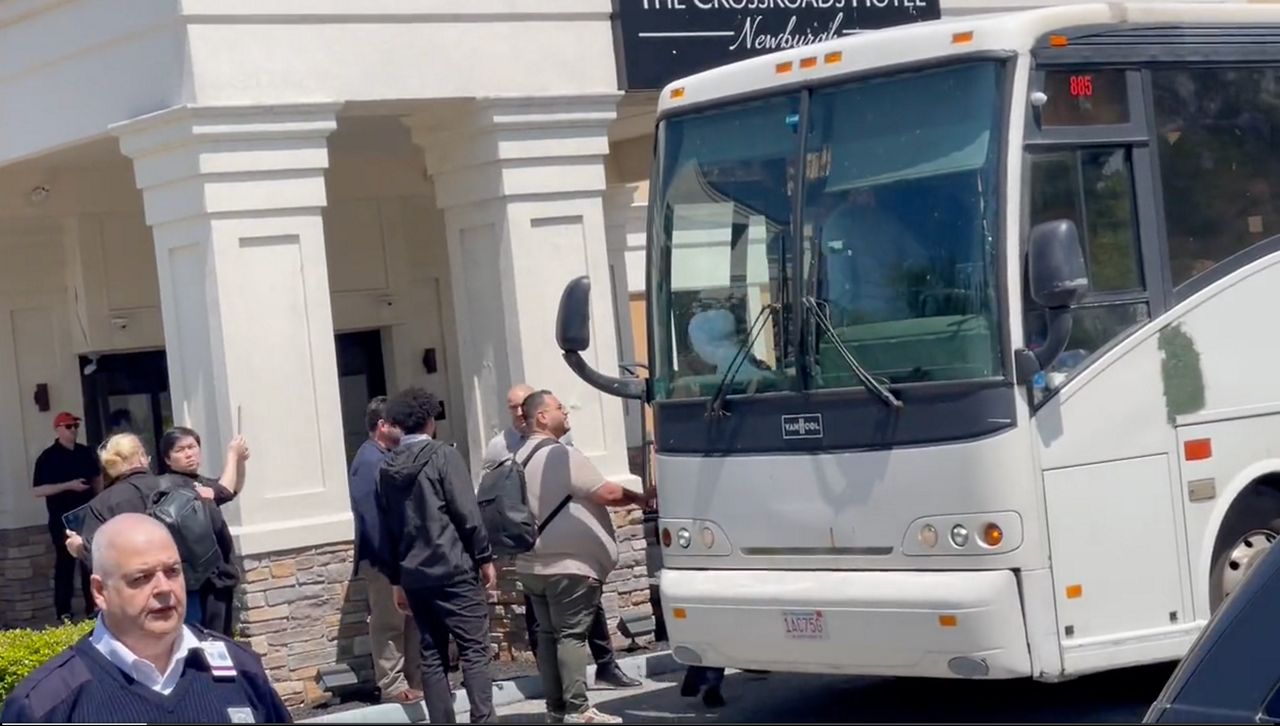Facilities sheltering migrants from New York City are closing this week.
The Albany Ramada Plaza facility was closing Tuesday and the Albany Holiday Inn Express facility will close on Friday; other recent or impending shelter closures in the region include the SureStay Plus Best Western in Albany, the Crossroads Hotel in Newburgh and the Red Roof Inn Plus in Poughkeepsie, according to the office of New York City Mayor Eric Adams.
In a statement, his office says it is continuing to see a decline in people entering the shelter system every week. It also says facility staff have helped guests plan for their next steps, and those without an exit plan have been offered temporary placement in New York City.
But as New York City moves to close the shelters, ripple effects are being felt across upstate. Albany faces the challenge of relocating hundreds of migrants as local leaders and nonprofits call for the state to intervene.
The closure of migrant shelters across the state is part of a broader effort led by Adams to consolidate resources as the number of asylum seekers declines.
However, the decision leaves many migrants in limbo, facing uncertain futures as they are asked to vacate their temporary homes by the end of the year.
Despite offers to return to New York City, many migrants have integrated into upstate communities, finding employment and providing a life for their families.
“Some have purchased homes, some are in apartments," said Bryan MacCormack, co-executive director of the Columbia County Sanctuary Movement. "Kids are in schools and colleges and some of them have not been able to find the resources to get out of these hotels, and they should not be evicted between the holidays.”
New York City officials say the decision to close shelters that house migrants across the state was not made lightly.
Adding more than 170,000 migrants have been helped through federal, state and city policies.
Earlier this week, however, elected officials and community organizations that work with migrants gathered to address what they called a crisis.
“These are human beings that are coming here for a better life," Albany County Executive Dan McCoy said. "And this country was based on immigration. We all immigrated here one way or another."
By the end of this month, asylum seekers from the lower Hudson Valley to Western New York face eviction. Many will head back to New York City, while others want to stay in the communities they now call home.
“We are calling on the governor to take action and prove that she represents all of New York by providing the resources needed to continue our successful resettlement efforts,” said Iridian Lucas Garcia, campaign coordinator at the Columbia County Sanctuary Movement.
Some organizations say those who don’t travel to New York City may not get any assistance with their move. They shared concerns over the uncertainty many are facing.
“The fact that things got pulled early was frustrating and disheartening," said Daniel Butterworth, executive director of Risse. "And, you know, it just kind of added more tension, more fear, more conflict to an already tense situation.”
New York City officials said they will continue to look for sites to close, in part, to help save taxpayer money. They say the state is still paying some of the costs to run sites operating downstate.



